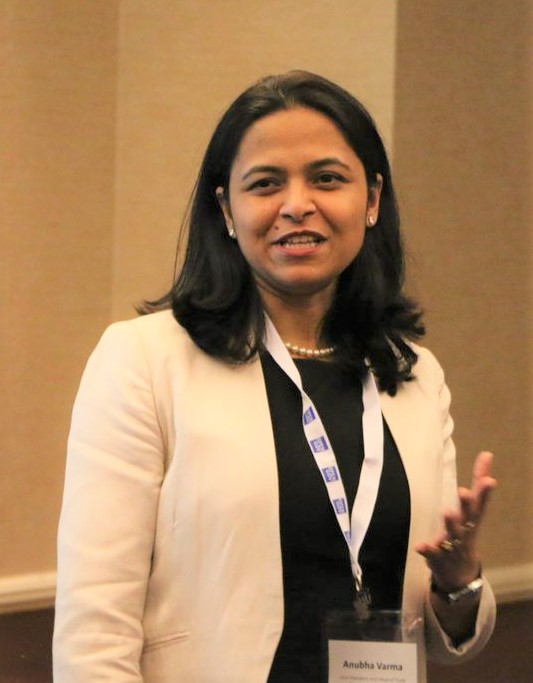
The future of AI is here. Organisations are constantly looking at improving their ways and services by incorporating AI tech into their systems. As such, it is imperative that businesses stay relevant and keep up with the technological changes around them.
OpenGov’s Breakfast Insight on 26 July, held at Marina Mandarin Singapore, saw senior executives from the financial sector come together to share knowledge and gain insights on adoption of AI technology and how to incorporate it to KYC.
The discussion session focused on the three key areas, but true to the OpenGov style, allowed delegates to explore other relevant issues as well:
- How AI will enable hyper-personalisation to become a reality
- How biometric identification technology would help in smart customer service and reducing fraud risks
- How to move from traditional practices to an automated AI approach
Know your customer to attract your customer

“It is not a surprise to see customers of today impatiently waiting for services. They demand prompt services and immediate solutions to any hindrances they may experience.”
This notion of customers being time-starved was the opening address made by Mohit.
He talked about how the new wave of millennial customers are “born digital” and are demanding simple, fast and convenient digital transactions.
He stressed how it is crucial for financial services to practice “Know Your Customer” (KYC) and to constantly reinvent their services as customers are constantly reinventing themselves with technology.
Mohit broke down the current KYC features of financial services:
- High customer onboarding costs
- Long onboarding time
- Costs incurred for regular updating of data
- Negative customer experience due to lack of customer digital experience
He shared how certain agencies allow their customers to electronically provide also touched on areas of concern in the implementation of KYC digital services – privacy and security.
While possession of personal information of customers allows financial services to employ them in real-time, distrust and fear exist among customers on how and where else their information is being used by these organisations.
Mohit concluded with the key message of establishing a legal framework for digital ID and its use by third parties safely and securely.
OneConnect

OneConnect is a FinTech SaaS provider of advanced technology-enabled business solutions to small and medium-sized financial institutions, covering all areas of office functions.
A leading solutions provider, they are experts in technologies such as AI, blockchain, cloud platform, and biometrics identification.
They have over a 100 products their four main business disciplines :
- Digital bank solutions
- Digital insurance solutions
- Digital investment solutions
- SaaS cloud platform: digital sales, digital product development, digital risk management, digital operations, and technology
OneConnect possess four key advantages in technology- mainly business scenarios, massive real-life data, talent, and long-term capital.
OneConnect prides in providing their clients with increased customers, reduction in risks, diversified products, optimized service, and efficient operations.
Wait – there is more to KYC

The aim of this session was not to just inform delegates about KYC but also for them to leave the session with a deep understanding of what KYC is and how it should be incorporated into their business.
Anubha Varma, Vice President and Head of Trade Finance, Australia and NZ, did just that by giving everyone a walkthrough on the origin of KYC, the tech implementations and the future of it.
She shared how the 9/11 incident awakened the whole world in terms of the global phenomenon of money laundering financing the activities of terrorists.
The aftermath was a crush to the socio-economic status of countries across the world. Post 9/11, the US, EU, and other government organisations introduced KYC and anti-money laundering framework and policies.
She talked about how KYC became a focus on “a data-led fight against financial crime and money laundering”.
Anubha went on to explain the challenges faced by banks/FIs and their clients, which pose as obstacles for KYC:
Challenge of Banks/FIs
- Escalating operational cost
- On-boarding time of clients
Challenge of clients
- Lack of consistency
- Security of data
She said that the lack of standardization in the specifications and technology lead to multiple formats across multiple jurisdictions and thus contributing to the challenges faced.
She painted the picture on what blockchain is and of how it can be used for KYC:
Customers/companies possess the public/private keys with which they upload files onto the blockchain. Banks/FIs on the other hand access customer information with the public/private keys provided. Blockchain technology also acts as a secure platform for banks to efficiently share customer information.
With the above-mentioned challenges, Anubha stressed that businesses need to incorporate the use of AI, biometrics and digital identity with an overlay of blockchain to allow for a shared KYC platform. She explained that AI removes the need for conducting the mundane activity of repeatedly checking customer information. She added that digital identity is a “key drive” that the Singapore government is employing.
She said that overcoming these challenges will allows businesses to enjoy internal benefits: (1) reduce cost and risk (2) increase speed and external benefits: (1) data security (2) enhanced customer experience.
Anubha concluded her segment by mapping out the future journey of KYC and reiterating of how its use will enhance customer experience:
- Investment in data and technology systems
- Increased regulations
- Standardisation of KYC requirements – between customers, banks, and government regulators
Polling questions and discussions
The session transitioned to a more interactive polling and discussion session. Delegates answered questions on their issues/concerns/actions taken towards KYC:
On their primary objective of digital strategy, customer/employee experience enhancement received the highest votes (58.6%). Helen Luo, Senior Director and Head Risk Reporting at Credit Suisse said that statistics show that a company with high customer value and experience provides its clients with value customer experience. Paris stressed that financial services must be “mobile-centric” to better serve their customers.
Digitising core banking solutions got the highest votes on the application at the top of the list for organisations (79.3%). Gaurav Gupta, Senior Vice President, Tech Governance and Audit Management at UOB said “Evolving digitising into the next functionalities. There is still paperwork involved which takes away from e-KYC and machine learning and hence work on evolving digitising of solutions into the next functionalities have to pick up speed.”
Customer service (56%) was voted as the area of focus on a customer’s lifecycle. Delegates agreed that customers are aware of their demands and banks/FIs must employ design thinking around their services to match up to their customer’s demands.
In terms of their satisfaction level of the quality of KYC related data, most delegates voted that their data could still use some work (75%). Ashok Murthy, Head APAC Wealth Management & Banking Products shared, “The issue is of using data and connecting it to the right people to monetise it – fraud prevention, customer satisfaction”.
Post-event insights
Steven Hu, Senior Vice President of Innovation at HSBC, shared his perspective on how AI is a relatively new concept to be employed in banks. He said that it is important to use technologies such as AI and blockchain to allow banks to function efficiently and enhance the customer experience. He agreed that the banks must improve their services to meet the rising demand of today’s young customers who expect quick and efficient services.
Gaurav said, “Companies still see technologies as a cost”. He stressed that companies should change their mindset around it and realise that the use of technologies improves their services and show their customers that they are better able to serve them.
Conclusion
Delegates walked away feeling enriched with knowledge about how it is imperative for them to employ the use of technologies such as AI and blockchain to enhance the efficiency of their services to their customers. There was a consensus that the new wave of customers expect efficiency and immediate provision of services. Hence, it is imperative that the financial sector understands what their customers want and to attend to their multi-requests.
















